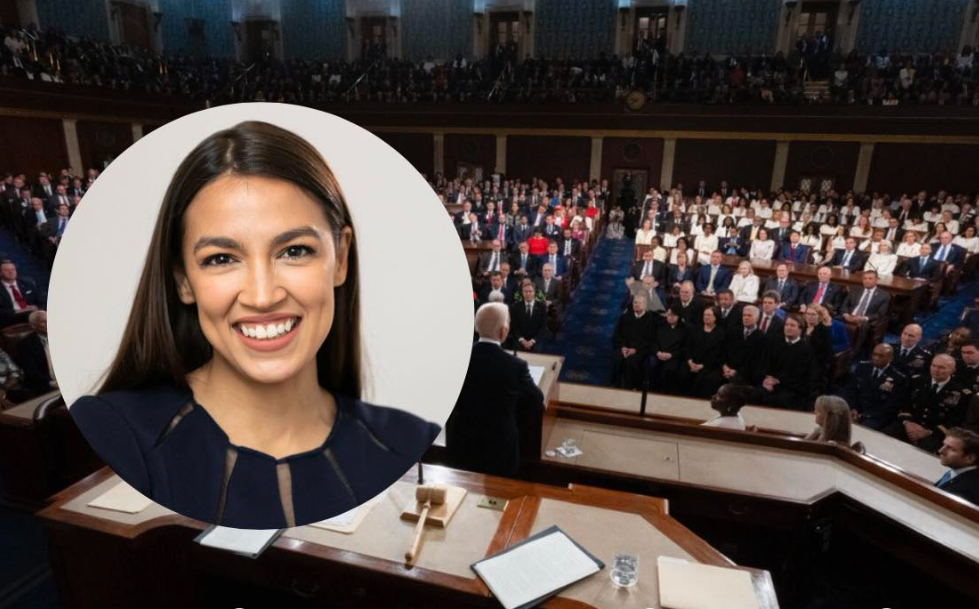A stunning vote rattled Washington just hours before Zohran Mamdani touched down in the nation’s capital. In a rare show of bipartisan theater, Congress formally and emphatically denounced socialism — a sweeping gesture that seemed almost choreographed to coincide with the arrival of New York City’s most unapologetically progressive mayor-elect, a man whose campaign thrummed with promises of affordability, housing justice, and systemic reform. Allies brushed off the timing as pure coincidence, a footnote in the relentless pace of federal politics. Critics, however, read it as something far more pointed: a warning shot aimed squarely at the new wave of progressive leadership emerging in urban America. For Mamdani’s movement, the message was subtle yet unmissable: ambition on city streets is one thing; acceptance on Capitol Hill is an entirely different calculus.
Though the House vote carried no binding power — largely symbolic, some would say performative — its choreography was impossible to ignore. A total of 285 members, including a significant number of Democrats, publicly declared their opposition to “socialism in all its forms.” To the casual observer, the resolution may have read like an abstract political posture. But for insiders, the timing and composition were deliberate, a message encoded in party discipline and public optics. Leaders like Hakeem Jeffries and Tom Suozzi, representing districts where progressive language might terrify moderate and suburban voters, demonstrated the fine line they intend to walk: signaling loyalty to traditional American economic norms while quietly distancing themselves from ideological branding that could alienate key constituencies. Republican strategists, by contrast, were ready to seize the moment, eager to define the next generation of progressives not by their policies, but by a label steeped in Cold War-era suspicion.
Into this charged atmosphere stepped Zohran Mamdani, carrying not just a mandate from voters, but the weight of expectation from a city grappling with deep inequality, housing crises, and a hunger for accountability. Every handshake and carefully rehearsed line at his meeting with President Trump will likely be transactional: securing federal dollars for infrastructure projects, negotiating support for public safety initiatives, or navigating the fraught landscape of immigration policy. Yet the subtext is unmistakable. Washington, through both symbolic and practical gestures, has made clear that it is willing — even eager — to scrutinize, test, and occasionally block the ambitions of a rising progressive leader, no matter how popular in his own backyard.
The optics could not have been sharper. One hand in the marble halls of federal power, the other gripping the pulse of a city demanding transformative change. Mamdani’s platform, rooted in tangible issues like rent control, public housing, and community-led policing, meets a Congress ready to challenge the language of ideology. Suburban voters, skeptical swing districts, and a deeply partisan media ecosystem all converge to remind him: the road from city hall to national influence is a gauntlet, and even symbolic votes carry the weight of real consequences. For the young mayor-elect, the day was a masterclass in dual realities — the exhilaration of electoral triumph contrasted against the sober reality of governing under a federal gaze that may not share his vision.
As Mamdani navigates the halls of Washington, every encounter becomes freighted with layered meaning. A nod from a committee chair, a sidelong glance from a senior congressperson, or even a passing remark about economic orthodoxy signals the boundaries within which progressive ambition must operate. While City Hall provides a laboratory for experimentation, Congress functions as both referee and constraint, reminding Mamdani and others that bold promises must be reconciled with the structural realities of American governance. In this moment, the interplay between municipal power and federal oversight crystallizes: local victories are exhilarating, symbolic resolutions are instructive, and the challenge of translating progressive ideals into actionable policy requires not just vision, but tactical acumen and political resilience.
By the time Mamdani leaves the capital, the lesson is unavoidable. Washington’s formal denunciation of socialism, coupled with the careful framing of his meeting with the President, underscores a duality every rising progressive must contend with: celebrating electoral victories without underestimating the vigilance of institutions, embracing policy ambition without provoking ideological alarm, and balancing public mandate against political pragmatism. For Mamdani, this is more than a symbolic encounter — it is a test of resolve, a reminder that governing in the American system demands negotiation, patience, and a keen awareness of the forces that define the boundaries of possibility. The city may have given him a mandate to transform lives, but Washington just reminded him that the path forward will be measured not only in ballots, but in every handshake, vote, and carefully chosen word along the way.
